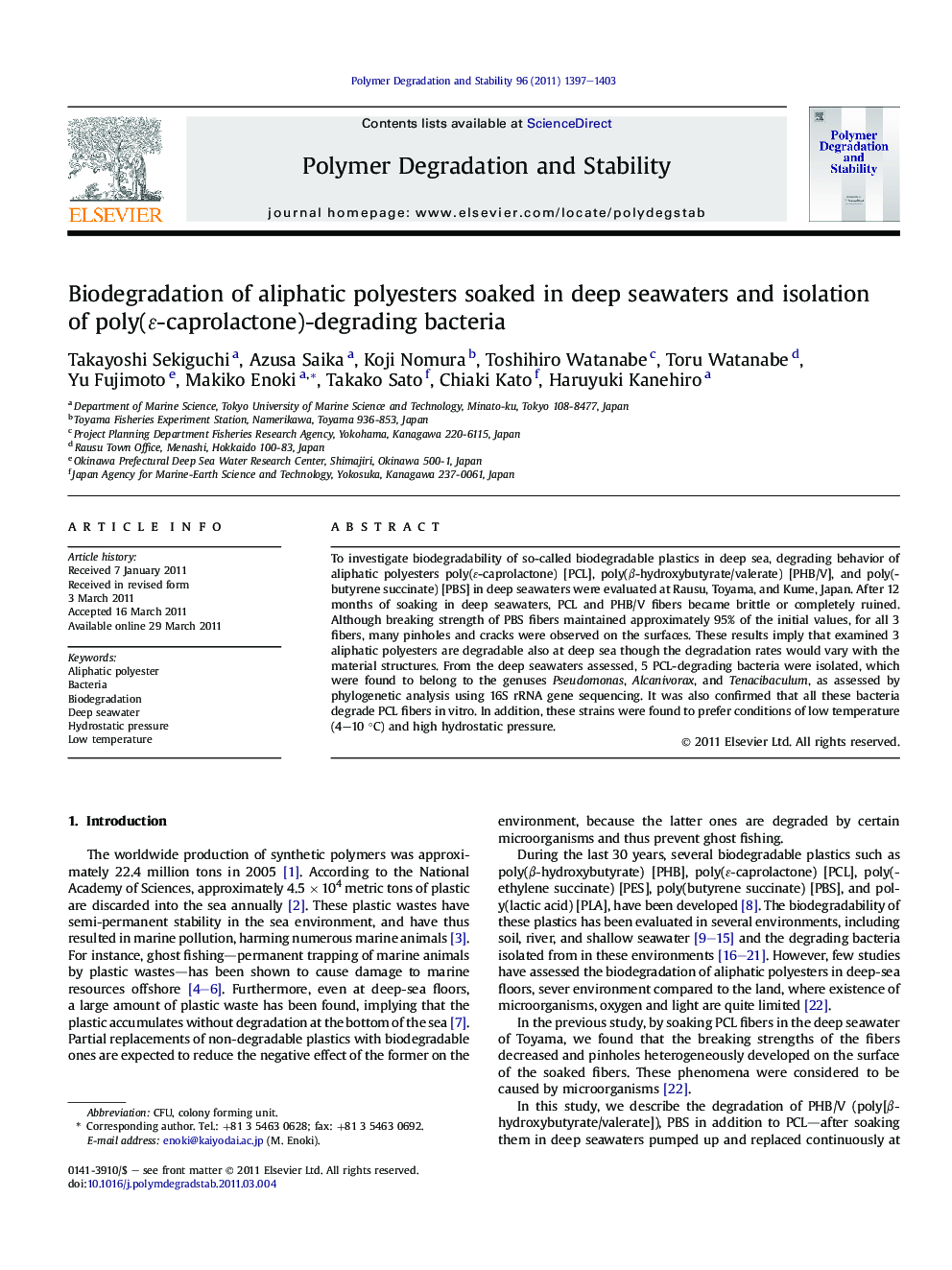| Article ID | Journal | Published Year | Pages | File Type |
|---|---|---|---|---|
| 5203601 | Polymer Degradation and Stability | 2011 | 7 Pages |
Abstract
To investigate biodegradability of so-called biodegradable plastics in deep sea, degrading behavior of aliphatic polyesters poly(É-caprolactone) [PCL], poly(β-hydroxybutyrate/valerate) [PHB/V], and poly(butyrene succinate) [PBS] in deep seawaters were evaluated at Rausu, Toyama, and Kume, Japan. After 12 months of soaking in deep seawaters, PCL and PHB/V fibers became brittle or completely ruined. Although breaking strength of PBS fibers maintained approximately 95% of the initial values, for all 3 fibers, many pinholes and cracks were observed on the surfaces. These results imply that examined 3 aliphatic polyesters are degradable also at deep sea though the degradation rates would vary with the material structures. From the deep seawaters assessed, 5 PCL-degrading bacteria were isolated, which were found to belong to the genuses Pseudomonas, Alcanivorax, and Tenacibaculum, as assessed by phylogenetic analysis using 16S rRNA gene sequencing. It was also confirmed that all these bacteria degrade PCL fibers in vitro. In addition, these strains were found to prefer conditions of low temperature (4-10 °C) and high hydrostatic pressure.
Keywords
Related Topics
Physical Sciences and Engineering
Chemistry
Organic Chemistry
Authors
Takayoshi Sekiguchi, Azusa Saika, Koji Nomura, Toshihiro Watanabe, Toru Watanabe, Yu Fujimoto, Makiko Enoki, Takako Sato, Chiaki Kato, Haruyuki Kanehiro,
